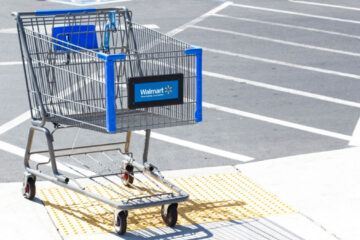Over the last few years, the demand for alcoholic beverages has decreased, causing declining sales for companies that have built empires thanks to this vice.
The struggling alcoholic beverage market has led companies to expand their product offering to attract sober and sober-curious customers as younger generations have become more aware of their personal health, increasing the demand for non-alcoholic beverages more than ever.
💰💸 Don’t miss the move: SIGN UP for TheStreet’s FREE Daily newsletter 💰💸
What has grown even more popular are the emerging healthier soda alternatives, which have disrupted the traditional soda market like never before. Even top companies like PepsiCo have reported negative revenues due to a slowdown in the U.S. market, which used to be among its most profitable clients.
Related: Popular beverage brand faces another controversy
Although the traditional soda market is facing a decline, companies that were once small startups, such as Olipop, Poppi, and Culture Pop, have grown to astronomical numbers in a matter of a few years, something even the most veteran competitors couldn’t achieve after decades of existence.
A view of Olipop during the Food Network New York City Wine & Food Festival.
Olipop becomes a billion dollar company in less than seven years
Although Olipop launched only seven years ago with an initial investment of $100K, it has reached a valuation of $1.85 billion with profits of around $50 million.
Olipop is a probiotic sparkling beverage that markets itself as a healthier alternative to the traditional sugar-filled soda by mimicking its taste and bubbly feel while being less damaging to consumers’ gut.
Related: New fast food releases to make Valentine’s Day special
Olipop’s formula consists of plant-based, vegan, GMO-free, and gluten-free ingredients without sacrificing flavor. Its colorful packaging, with fun and youthful designs, also sets it apart and easily captivates people’s attention.
Olipop is sold in some of the biggest retailers, including Walmart (WMT) , Target (TGT) , Whole Foods (AMZN) , and Kroger (KR) , targeting shoppers who choose the brand as their preferred beverage and new shoppers who have begun consuming carbonated soft drinks because of Olipop.
Olipop develops a timely marketing strategy around social media buzz
Although a fairly new company, Olipop’s success story didn’t happen overnight.
In 2020, during the peak of the COVID-19 pandemic, Olipop made a strategic business move using social media as its primary marketing tactic, specifically TikTok, which was booming at the time.
The company’s relatable and emotionally evoking content, along with TikTok’s algorithm, made it go viral on the short-form video platform in a matter of months. It quickly resonated with Millennials, Gen Zers, and health enthusiasts, who comprise most of Olipop’s consumers.
As it grew in popularity, Olipop began partnering with other TikTok creators with pre-established communities to expand its brand awareness, leveraging immense organic and sustainable growth.
More Retail News:
McDonald’s announces return of fan favorite item after nearly a decadeStarbucks offers free coffee after Dunkin’ Super Bowl LIX ad slamFormerly bankrupt restaurant chain reopens locations, delighting students
Not only has Olipop formed partnerships with social media influencers, but it has also managed to captivate Hollywood’s A-list celebrities to invest in the company, including the Jonas Brothers, Priyanka Chopra, Gweneth Paltrow, Camila Cabello, and Logic.
Olipop has gained so much traction over the years that even Former Pepsico (PEP) CEO Indra Nooyi and her husband have a stake in the company. This shows the powerful impact that strong core values, a great marketing strategy, and prominent investors can have on a company’s growth.
Related: Veteran fund manager issues dire S&P 500 warning for 2025


